她打辉瑞过3天脑出血身亡 13岁儿做CPR崩溃哭喊
10/10/2021
南韩截至9日至少接种一剂新冠疫苗人口比例达77.7%,但6至8日间不良反应通报就超过1万件,包括18起死亡事件,令民众人心惶惶。一名40多岁女性接种一剂辉瑞/BNT疫苗,短短3天后不幸身亡,悲愤的家属上青瓦台请愿网站,控诉政府不愿承认这起死亡事件与疫苗有关,受到大众关注。
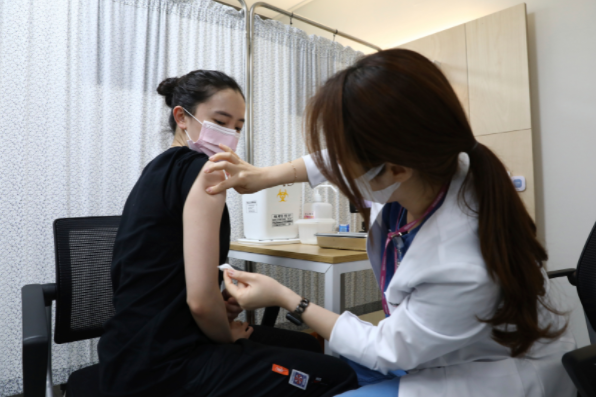
综合韩媒报导,一名男子8日在青瓦台网站以“妻子在接种第一剂辉瑞的第三天过世了,觉得非常委屈”为题,文中说明,他的妻子9月28日前往施打第一剂疫苗,却在1日凌晨走了。当天上午儿子打电话告诉他,“妈妈不起床”,他才得知妻子状况不对劲,赶回家的路上却接到急救人员电话通知,妻子死亡已有一段时间,无法急救。
他们13岁的大儿子当时边哭边为母亲做心肺复甦术,待男子赶到家时,只见儿子脸上全是泪水和汗水。突如其来的死讯令他脑中一片空白,感到懊悔、伤心,又担心年幼的孩子们,根本不记得自己接受警方调查时到底说了什麽。
他一面安排妻子的后事,一面向卫生所通报这起接种疫苗后死亡的案件,但疾病管理厅及卫生所在葬礼期间完全不闻不问,也没有向他说明该如何处理,“为家属带来二次伤害。”
他指出,妻子死于脑动脉瘤破裂引发的蜘蛛膜下腔出血,而国内接种疫苗后死亡或出现严重后遗症的个案中,也有不少患者和他妻子一样出现脑血管破裂,有些成为植物人,有些还在加护病房治疗,却因政府不愿承认与疫苗有关,令他们饱受痛苦,呼吁政府正视问题,别再让悲剧发生。
南韩2名20多岁女打辉瑞疫苗 头痛副作用竟变脑出血
来源:联合报
9/18/2021
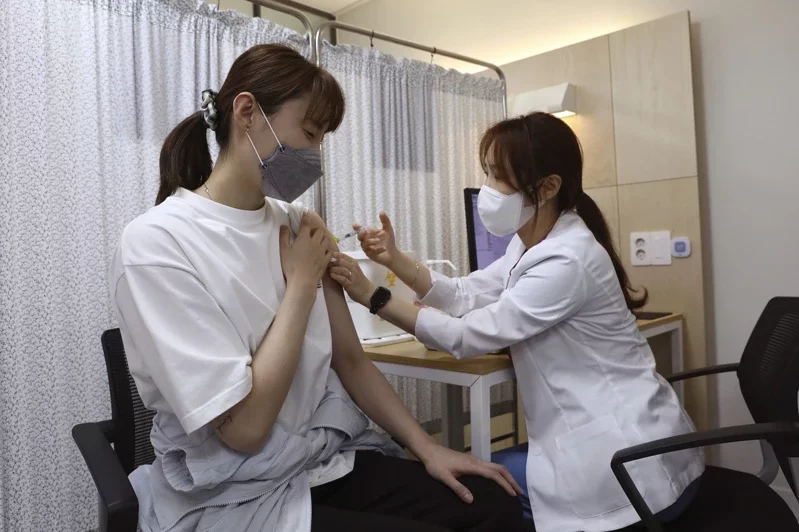
南韓近日又傳出兩起接種新冠肺炎疫苗後出現嚴重副作用的案例,兩名20多歲女子在接種輝瑞(BNT)疫苗之後,先是感到嚴重頭痛,最後居然演變成「腦出血」。
南韓中央日報報導,近日南韓青瓦台的請願網站上出現兩則文章,講述親人在接種輝瑞疫苗後,都出現腦出血的狀況。一名女請願者表示,她的21歲女兒原本很健康,但在8月4日接種輝瑞第一劑疫苗後,在20日開始出現頭痛、呼吸困難等症狀,最後更演變成腦出血,倒在醫院的急診室裡,之後院方診斷為是蜘蛛膜下腔腦動脈瘤出血。
該女子表示,女兒在經過治療後身體狀況逐漸好轉,但仍然還有頭暈、噁心想吐、頭痛等症狀。認為許多民眾相信政府去打疫苗,但現在有人接種後出現狀況,相關當局卻不願意承認是副作用,她呼籲政府應該承擔起這個責任。
另外一名請願者則說,她的25歲姪女日前接種輝瑞疫苗,數天後出現劇烈頭痛。姪女原本認為頭痛是疫苗引起的副作用,以為吃了止痛藥就沒事,結果最後頭卻越來越痛,最終更變成嚴重的腦出血,目前仍躺在大學附屬醫院的加護病房,尚未恢復意識。
這名請願者希望,當接種者出現嚴重副作用後,必須承擔的醫療費用,盼政府當局能夠負擔,並給予醫療補助。
韩国爆多起年轻人接种辉瑞疫苗后猝死 引大众担忧
来源:联合报
8/29/2021
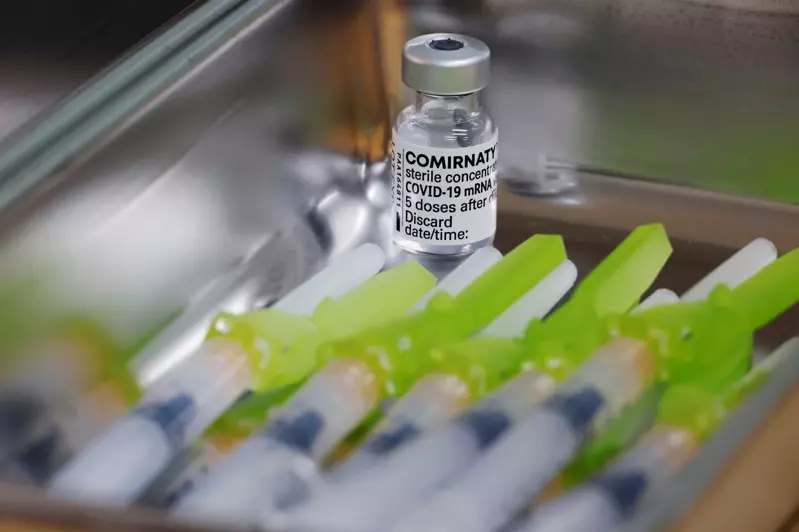
韩国中央日报报导,韩国19日开始为年轻人接种新冠疫苗,之后却惊传多起20多岁年轻人接种辉瑞(Pfizer)疫苗后猝死案例,引发大众担忧。
韩国警方23日指出,忠清南道公州一名21岁女大生16日接种首剂辉瑞疫苗,没有发生任何显著副作用,却在23日下午被发现陈尸租屋处。女大生家属指出,她没有任何已知潜在疾病,当时和朋友一起读书至深夜,监视器有拍到女大生猝逝当天凌晨有去便利商店。
女大生遗体被发现时,身上有紫色斑点。目前女大生家属和警方已要求韩国国家法医中心进行尸体解剖,已查明死因。
韩国其他地区也有发生类似案例。一名20多岁近30岁男子在济州岛2日接种首剂辉瑞疫苗,出现胸痛。这是常见的副作用症状,男子于22日就医,但之后因症状恶化过世。他也没有任何潜在疾病。此外,一名25岁健康邮务人员则是接种第二剂辉瑞疫苗后,于10日去世,前后仅过3天。
梨花女子大学木洞医院教授全恩美(音译)表示:“对20多岁的年轻人而言,疫苗产生的副作用大多不会致死。但政府必须检查并公布死因,缓解大众焦虑。”
中央日报也呼吁韩国政府,厘清并公布死因后也要为每种副作用案例提供医学检查方法。
Young people’s deaths after Pfizer vaccines are new worry
BY SEO JI-EUN
8/29/2021
Deaths following vaccine jabs among people in their 20s continue to be reported in Korea, adding fresh concerns as inoculations for younger people start Thursday.
A 21-year-old female college student diedone week after getting her first dose of Pfizer’s Covid-19 vaccine in Gongju, South Chungcheong on Monday, according to police reports. She had no known underlying medical condition, her family said.
According to local police, the woman received her first dose of the Pfizer vaccine on Aug. 16 and apparently had no particular side effects. According to her family, she studied until late at night with friends, and was captured on CCTV going to a convenience store at 2 a.m. on the day of her death.
She was found dead in her residence around 2:25 p.m. Monday by the house owner, who received a call from her parents saying she was not answering their phone calls.
She had purple spots on her body when she was found, and the family and the police requested an autopsy from the National Forensic Service to find the cause of death.
“My younger sister was preparing for the teacher certification exam so our family always worried about her health, and continuously contacted her every few hours and checked her condition after she got her vaccine,” a petitioner who claimed to be her sibling wrote in a petition on the Blue House website on Monday.
“There were no signs of worries or stress [in the posts] on her blog that indicated she was planning to take her own life,” the petitioner wrote. “Also, the testimonies of relatives and the family’s opinion agree that this is not a suicide case at all, and that she had been very healthy.”
Similar post-vaccination deaths of the young have been reported in the country.
A man in his late 20s died Sunday, 20 days after receiving a Pfizer Covid-19 vaccine in Jeju.
The man received his first dose on Aug. 2. He complained of chest pain, a common post-vaccine symptom, and visited a hospital on Aug. 22 but died after symptoms worsened.
Working at an airport in Jeju, he was given priority status in the vaccination scheme and received the shot in early August, a health official at the Jeju Provincial Government told the Korea JoongAng Daily.
“He was known to have no underlying diseases,” the official said, yet he wondered whether a causal connection between the vaccine and his death will be acknowledged because of the 20 days that elapsed.
A healthy young mailman, who was 25-year-old, was found dead on Aug. 10, three days following his second Pfizer jab.
After getting the second dose of the vaccine, the man complained of muscle pain. His mother tried to wake him up for work around 5 a.m. on Aug. 10, but was dead.
An online user who claimed to be his sister posted a petition to the Blue House. She wrote, “My younger brother had a medical checkup in July around the time he got his first Pfizer shot, and except for slightly elevated levels of liver enzymes, [the results showed] he was very healthy.
“My family can’t help but raise suspicions that the vaccine is the cause of death, as he died three days after his second Pfizer shot,” the petitioner added.
According to his family, a first autopsy failed to ascertain the cause of death, and they were told that further results will come out one to two months later through an investigation by the KDCA and the National Forensic Service.
Relatives of the deceased worry that the government will not acknowledge that the deaths were caused by Covid-19 vaccines.
Currently, Korea only acknowledges three types of symptoms as post-vaccination side effects: anaphylaxis, or severe allergic reaction; unusual blood clots with low blood platelets termed thrombosis with thrombocytopenia syndrome, or TTS, that can be caused by a viral vector vaccine like AstraZeneca or Janssen; and inflammation of the heart or its lining called myocarditis and pericarditis that can be reported after mRNA vaccines like Pfizer or Moderna.
As of Monday, the KDCA received 492 reports of fatalities after vaccinations — and only two cases have been officially acknowledged as vaccine-caused deaths.
Korea’s Covid-19 Vaccination Damage Investigation Team acknowledged a man in his 30s died due to TTS related to his AstraZeneca inoculation, and a Pfizer recipient in his 20s died due to myocarditis.
“My family is still waiting for additional results from the autopsy, but a lot of people are telling us that the government will say there was no causality,” the family of the mailman wrote. “If we cannot trust the government in this war-like situation, what and who can we rely on?”
Korea will start offering Covid-19 vaccinations to the general public aged 18 to 49 this Thursday, either Pfizer or Moderna’s vaccine depending on the vaccine supply schedule.
“We advise you not to feel pressured or scared by [vaccine side effects] as the benefits of Covid-19 vaccines outweigh the risks,” Cho Eun-hee, an official from the Covid-19 Vaccination Damage Investigation Team said Tuesday.
As concerns are growing among young people, experts say the government should clarify the exact cause of death and present the medical examination method for each side effect cases.
“For people in their 20s, side effects from vaccines mostly don’t lead to death,” said Dr. Chun Eun-mi, a professor of respiratory medicine at Ewha Womans University Mokdong Hospital. “But the cause of deaths must be examined and announced to allay the public anxiety.”
“In a situation where the government is asking people to get vaccinated,” said Dr. Kim Woo-joo, a professor of infectious diseases at Korea University Guro Hospital, “individuals cannot check the safety of each vaccine. The government must inform the medical staff and the public of the safety information and how to receive treatment for any symptoms.”
Experts advise heart patients or people with family histories of heart disease to get a checkup before getting the vaccine. People who develop chest pain, fever or shortness of breath within a week after vaccination should immediately visit a hospital.
Chun also recommended young people get tested for Covid-19 with a home testing kit on the day of getting their vaccines.
“As there are many Covid-19 patients, especially among young people who are often asymptomatic or have weak symptoms, many tend to think the side effects are from the vaccine, yet they are actually from the virus,” Chun said.
“Side effects could be worse in someone with Covid-19, with the vaccine immune response and the virus symptoms mixed together,” she explained. Using home testing kits could prevent such cases if people who test positive cancel their vaccinations.
Meanwhile, the country saw 1,509 more Covid-19 cases on Tuesday, with the total caseload coming to 239,287.
巴西感染冠病总数逼近2000万 但死例趋缓
文 / 陈慧璋
8/01/2021
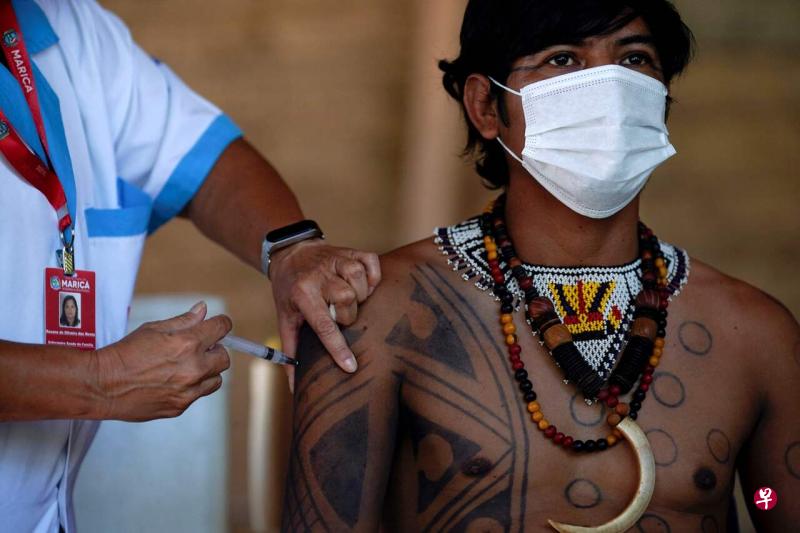
(早报讯)巴西卫生部说,过去24小时该国新增冠病确诊病例2万零503起,死亡病例则增加464起。
路透社报道,自暴发冠病疫情至今,巴西感染冠病总人数达到1993万8358人,官方公布的累计死亡病例为55万6834起。
巴西是全球冠病疫情第三严重国家,仅排在美国和印度之后,在死亡病例方面则仅次于美国。
根据路透社的统计,巴西过去一周的七天平均冠病死亡病例已从4月高峰下降到932起。在4月初疫情高峰期,巴西的七天平均冠病死亡病例将近3000起。
在冠病疫苗接种方面,截至7月31日,约1.42亿巴西人已接种至少一剂冠病疫苗,完成接种人数超过4140万人。巴西的总人口为2.11亿。
德1万3000人完成接种依旧感染冠病
文 / 许禄艺
5/16/2021
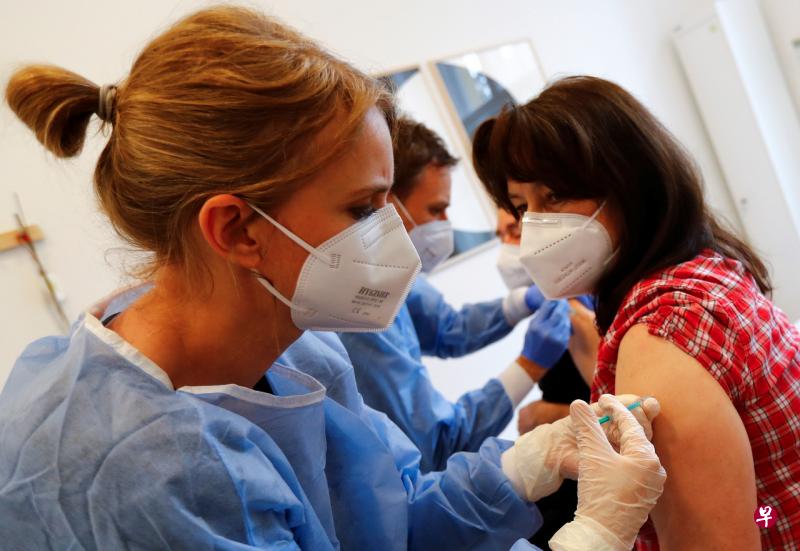
(早报讯)根据德国联邦卫生部当地时间周五(5月14日)发布的数据,该国目前完成全部疫苗接种的人数已超过800万,但其中仍然有约1万3000人的冠病病毒检测结果呈阳性,占比0.16%,死亡人数为662人;接种过第一剂疫苗的人数已超过2850万人,其中有约4万4000人感染冠病病毒,占比0.15%,死亡人数达到约2000人。
根据德国联邦卫生部的说法,目前还不能确定完成全部疫苗接种人员的具体感染时间,究竟是在接种第二剂疫苗后的14天之内还是之外。
德国卫生部指出,冠病疫苗虽然在大部分情况下可以显着降低感染风险,但无法百分之百保证。而且,在接种完第二剂疫苗之后,人体一般需要大概两周的时间才能建立起完全的保护机制。
Six Spaces Home Staging

Contact: Hongliang Zhang
Tel: 571-474-8885
Email: zhl19740122@gmail.com

